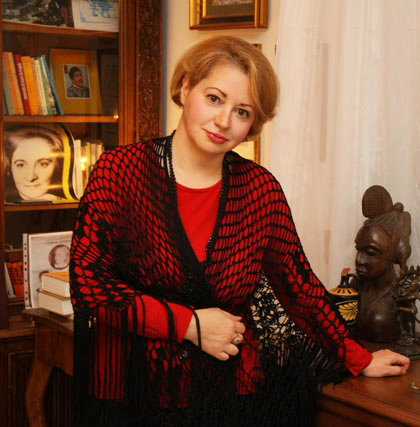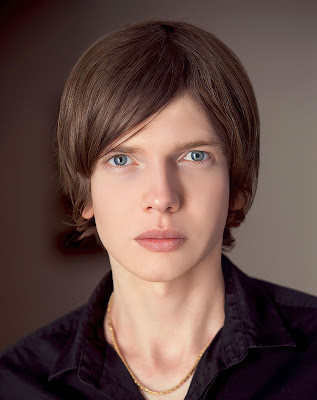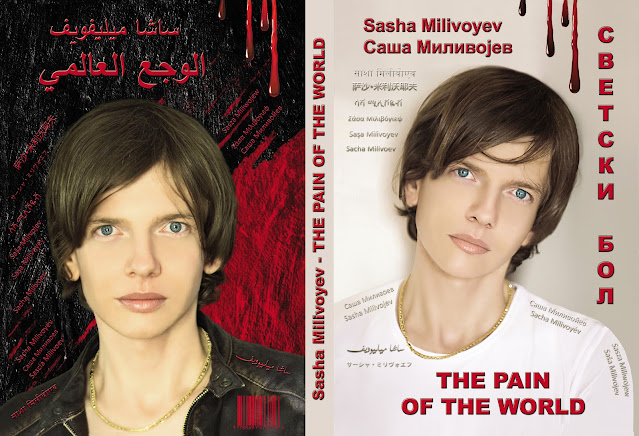Saša Milivojev - THE EMIR OF THE CONTEMPORARY POETRY OF SERBIA - ASIDE A BRITISH LIGHTHOUSE
 |
| Sasha Milivojev |
Saša Milivojev
THE EMIR OF THE CONTEMPORARY POETRY OF SERBIA ASIDE A BRITISH LIGHTHOUSE
Scientific overview of the song - the poem THE PAIN OF THE WORLD. A prelude to the poetics of Saša Milivojev. Penned by: THE NATIONAL PEST. Translated into English by: Ljubica Yentl Tinska
TO EACH TIME ITS EAST
THE EMIR AND THE TEMPEST
At the pinnacle of the Winter that was according to the global administrative calendar divided between the years 2018 and 2019, Saša Milivojev conceived a poem named “The Pain of the World”. Its title evoked memories not of Byron, yet of Shelley, and it is because of those memories that I rest these words of the Emir of the contemporary poetry of Serbia aside a British lighthouse.
ID OF “THE PAIN OF THE WORLD”
Served to the World, as a sizzling song, Saša Milivojev’s poem to be, “The Pain of the World”, clearly walked the content obsessed reader from Homer (has been or never was and whatever name bore he who recounted the atrocities of today) to Miloš (structurally, although it is known that Milivojev does not emulate), Darwish (Milivojev is also displaced, relocated poet, kindred by the inclination towards the exhaustive, brutal yet highly lyrical - although it is certain that one has not read the other), and Vasiljev (the reader being burdened by the textual legacy of the tongue in which Milivojev authentically sings).
Transcended to other tongues, fine-tuned to the rhythm of this World - not by what he addresses, rather by what those writings emit and by the inscribed - Balkan Soyinka, called Shoyinka upon a visit to Belgrade. How those who announced him, upon being awarded a Nobel Prize in Literature, pronounced his name, fails me.
BRINGING MILK TO THE FORE
Each man has his East, that is not necessarily one’s Source. It is a blazing South, that one shelters from in the Summer, and seeks shelter upon when fogs descend below street lanterns and seawolves (those old poets, even romanticists, post-romanticists and neo-romanticists) percept the lighthouses sheltering the cottages in which boils the water that is never to become tea. Who would drink it without the milk? Yet why is there no milk?
Why is there no milk? Those who perceive, consider and acknowledge themselves as Poets, not poets, scribblers or scribblemen are shouting out rather than asking. They are the ones - who have known from the very dawn of their perception that they were exceptional and this distinction they do not deny. They set it forth on their own accord, exhibit it and worship. They know how to capture the world and draw its attention to their extraordinary being. They are prompting the mankind to remember - that ambrosia, that implies immortality is of no significance, without that which nips mortality in the bud: It is not the air we live off, a new-born cannot survive on air only, without not ambrosia, not water, not wine, but milk, milk, milk. There have been and are but a few throughout the world who have been and are perspicacious, audacious and ready to voice this and Saša Milivojev is among them.
THE TROUBLE WITH THE POET
Saša Milivojev is a Poet. This is what he is by his perception and calling, followed by the self-awareness. One step ahead of the world, never turning back, boldly challenging the mankind and pointing his finger at whatever themes are eating mankind when he sings. Milivojev, therefore intentionally chooses what to sing and to whom. His is the song of everyman, however fundamentally addressed at men of power. How is this and why?
The answer lies in revealing who will not drink tea without the milk, and is tea what the word is about: the weather, as well as the entire reality of the world is not a good enough reason or a fair-minded explanation, justification and finally a valid excuse for the milkmaid’s son not having swapped around the empty bottles by the sailors front doors with the full.
Is reality accountable (Ah, that son of the milkmaid!) for poets spinning in circles (waiting only for the vampirished “beloved deceased”), or is it the poet where the trouble is? Could this be why he is not a Poet after all? Yet Milivojev is. And how is that?
MILIVOJEV KNOWS
Milivojev knows that the one who fails to methodically perceive the past, and perceives as the past what is considered to be tradition, who selectively approaches the thesaurus of human experience, the legacy in itself and one’s own native singing tongue, is not the selector of the motives, nor of the themes, yet rather the selector of reality.
Milivojev also knows what reality is: it vitally is what it is now, whilst essentially being what it has always been, including the present. Milivojev knows, that it is not the fate of Troy, nor the Vietnam war (neither as the actual nor as the processed “reminders” of the entertainment world, preserved as means of implementation of the new epic consciousness), yet it is the bleeding wounds, blown up body parts that are still warm and fresh corpses that count. Who is stumbling upon the limbs, whose body is reeking, whose fresh wounds are aching? Milivojev knows!
CATALOGUE
Milivojev knows and therefore addresses the mankind, pointing his finger to what a blind eye is turned. And it is with the gaze which is unmoving from the sight, that is more horrid than a nightmare, yet is our reality, that he reveals the culprit - not even having to name him.
From infinity to eternity all the seawolves of the universe, all poets of the world, have intertwined their verses with Her - a goddess, a muse, the beloved (with her sparrow no less, as did Catullus, (if those were some other times, I wouldn’t have to protect myself by mentioning the poet, because there wouldn’t be a reader around who would not know that I am referring to The Death of Lesbias Sparrow)), a mother, somebody’s wife and (unvampirished) beloved deceased (we could say her name has been Lenore way back from romanticism until today when and if speaking of ballads and - the motive), yet what is Milivojev doing?
Saša Milivojev is not pointing his finger at the ever guilty “woman” in “The Pain of the World” (although in his mother tongue the country is motherland, as is in Serbian tongue the unnamed, mysterious power of either kind), the woman is rather, as is the man, indivisible by sex and gender. She is there, she is present, as is the man, as a part of the cruel and unfortunate catalogue of our (not epic, yet real and empirically well shod) conscience. Our “Catalogue of Ships” however, accounts not for the ships and the ethnicities upon them, yet for corpses, corpses, corpses.
TO THE SEVENTH HEAVEN IT'S HEARD
Milivojev is the one who boldly and responsibly, with verses incisive and impenetrable, inscribes into the generic poem of the world and the universal human epos not tribes and mythical heroes - the future symbols of all and everything - yet human sufferers, human victims, humans who are children and the elderly, women and men that are on the other side of the lighthouse, where the capricious heirs of the fleets carrying tea decline, that there exist a different Other, the unbowed Other, free Other, who breathes and drinks, drinks, drinks milk.
Have the Empires foregone (especially the colonial, emphasised so in the post-colonial discourse) remained unlearned by their own recent fiascos? Are they unable to see that the heirs of the nobleman who once tailored the borders of states do the same today to the detriment of their own possessions? Is Milivojev, who sings not of London brimming with British Indians, addressing this, however non explicitly yet explicitly singing, weeping, to the Seventh Heaven it’s heard, about canyons brimming with the Afghans.
As colonial seawolves, or shall I say romanticists would say, Milivojev sings “colonially without a doubt”, bestowing the world with the consequences, consequences, consequences. While the Empire (which is also in Milivojevs mother tongue of female gender), remains silent.
TRIANGLES AND THE APPLE JAM
Let us go back to asking ourselves why is there no milk.
Although, by experience if not by reason, the learned wife of a seawolf, a good standing grandmother with a few greys, believes and knows why her grandson, used not to tea, yet to pure milk, not as hot as rather scalding, with four triangles of bread joined with apple jam, does not accept a single because. He is entitled to his mug of milk and will not accept shoddy breakfast, partially fulfilled role of the ancestors to nurture and feed him. And what of the upbringing?
Saša Milivojev has no illusions and is not afraid to say it as it is: the grandson of the seawolf does not want to be cultivated, rather to cultivate. He brings fear to the wind, and the cow and his own inmates - seldom sweetly, often fiercely, driving out the force as far away from home, yet the further it is, the greater it becomes. Carpets of bombs, salvos of missiles, kilotons of radioactive humanitarian food and fattening of the mankind with lies and misconceptions, it is what even a non-poet can see, yet only a Poet can, may and dares to perceive - loudly and clearly.
MUTATION
Cultivation and education impose boundaries on freedom to accept but a single fact. However, socialisation does not necessarily lead to finding understanding within the society, the nature and amalgamation of the two. It does not lead to accepting the culture, not even to walking in step with civilisation yet it does not alter them either. “The Pain of the World” is Milivojev’s warning to the world:
The progeny is more likely to seek the existing culture and civilisation he is best suited to, and remain as its part for as long as and while it is so, then proceeding further and beyond - never to the South, always to the East, from West even. He leaves the South for the Ancestors - to warm their freezing bones and seek shelter from what they were unable to change. And it is the Winter they were unable to change, to rearrange, relocate to malarious regions. They have relocated, not temporarily it appears, merely certain people unworthy of changing and many, many customs and habits. One of them is - killing. Still, have the seawolves evolved at the least?
The progeny of the seawolves are no longer changing the world and freeing captured kings. Byron, even if he was to be born again, would not be standing side with the Greeks against the Turks, he would rather be assisting the Turks in establishing the romanticised order (in changing the Arabic with the Latin alphabet on the tables, so that “everybody would be able to read them”).
HE
Non-methodical revelation of the world, immediate riposte to the pain of man, to the very physical pain, unburdened by the literature and birthright, is the ubiquitous, pain of the world. The concept has therefore, complemented the content altering its scope. There is no violent death that is painless not even when it is unheard, brought not by machine guns, canons and other countless weapons including the cold. Truth be told, reading Saša’s, rather than some Germanic “Weltschmerz”, one wonders whether chemical weapons are equivalent to white arms.
There are no Romanticists left, without a prefix, in either Germany nor Britain, and neither are born there either. They are yet to come, but they must first be born. Their poetic and poethological ancestor has set foot on his chosen East a long time ago, reaching it from Byron’s South and Shelley’s East. He knows that the Epos is thisworldly because of reality that is its fundamental component, as much as he knows that reality is more than something to sing about or, in terms of this century, cry about. He knows, he sings, and his name is Saša Milivojev.
The National Pest








Comments
Post a Comment